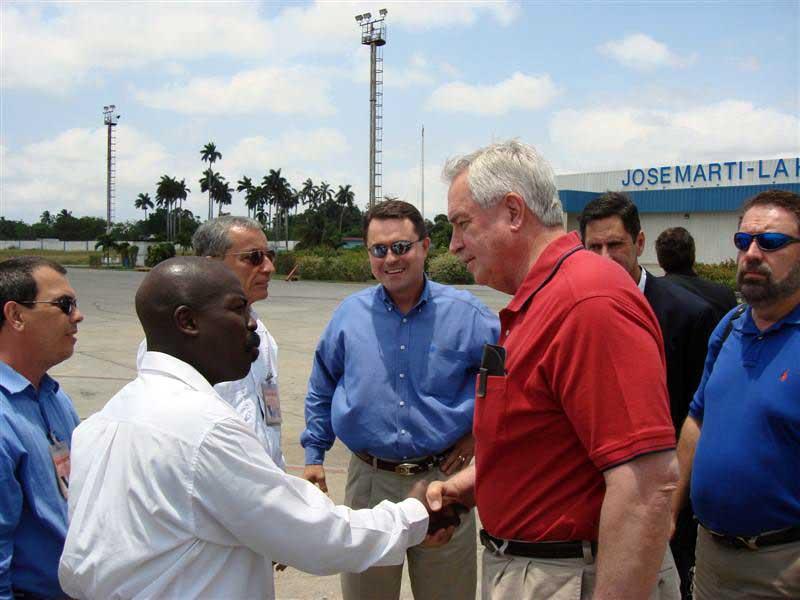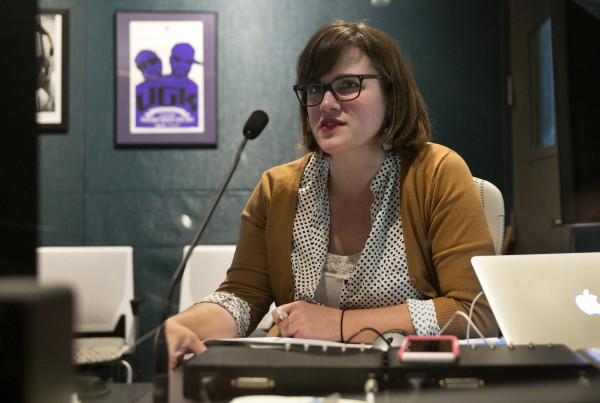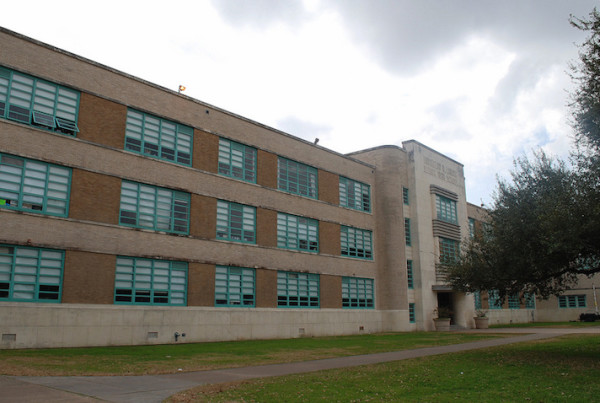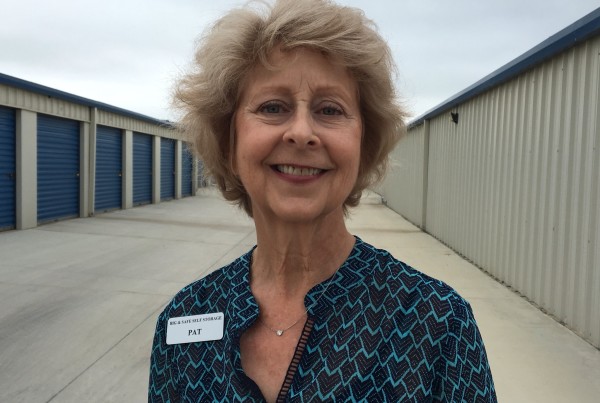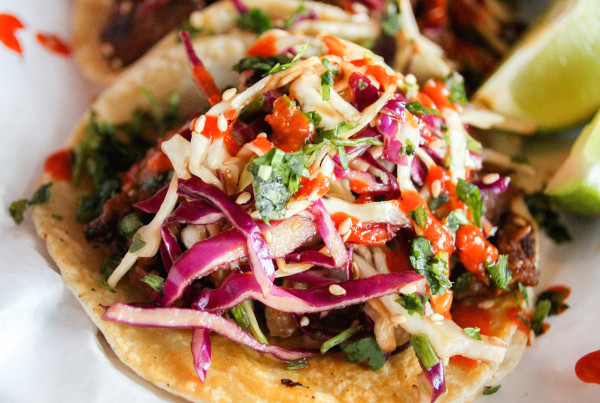This story originally appeared on KUT.
In August of 1999, a group of Texans boarded a plane headed for Cuba.
“It was hot, hot, hot, and you had 10 men and one woman packed into this little prop plane,” says Steve Pringle, then-legislative director for the Texas Farm Bureau, who was on the flight.
The group was on a special mission to bust open Cuba’s import market.
“Let’s just say it was exciting,” Pringle says.
His colleague Gene Hall wasn’t having as much fun. A few seats over, he was having flashbacks to the Cuban Missile Crisis.
“I believe to this day that’s the most frightened I’ve ever been,” he says. “There was the whole Communism thing, and the fear of an 8-year-old child. I never expected to ever be in Cuba.”
But here they were on their way to the island. They had gotten a license to visit, because it was still mostly off-limits to Americans. “It was certainly big news,” says Pringle. “It was so new they held a press conference upon our arrival.”
At the time, the U.S. didn’t allow any trade with Cuba. But U.S. rice farmers had been pushing hard to change that. Texas rice farmers and their allies at the farm bureau helped lead the effort.
“Cuba has always been of a lot of interest to Texas farmers and ranchers,” Hall says — especially to the state’s rice farmers. In the ‘50s, some growers sold almost their entire crop to Cuba, then came revolution and the embargo and many years of nothing at all, Hall says.
It wasn’t just the Texans who wanted to get their rice back into Cuba, he says. During the trip, an older woman came up to him at a market. “Tell them we need the rice,” the woman said through an interpreter. “Bring back the rice.” Hall was stunned that she remembered it. “We’re working on it,” he told her.
For the next week, the group of Texans toured the island, meeting farmers and officials. Then, on their last night as they were saying goodbye to their new Cuban friends, a government official approached them. “Get back in the van,” he said. “We’re going to the palace.”
It was 11 at night, but the group jumped at the chance. Once they arrived, says Pringle, “They start bringing out mojitos. We’re having a little cocktail party prior to dinner and all of a sudden President Castro comes in.”
This is Fidel they’re talking about, not Raul. Hall was nervous at first.
“This was a guy I was terrified of when I was eight years old.” But, he says, Castro was charming and he knew a lot about Texas agriculture. After dinner they pulled out maps, talked about the finer points of rice farming and smoked cigars.
“We stayed there until 5 a.m.,” Hall says, “They gave us a box of Cohiba cigars, and he signed the box.”
In return, Pringle offered up a Texas Farm Bureau hat and lapel pin, which Castro affixed to his fatigues.
“It was quite a night. It felt like we were part of history being there,” Hall says. In fact, they were. The members of the delegation played a major role in getting a landmark law signed by President Clinton the very next year: the Trade Sanctions Reform and Export Enhancement Act of 2000. For the first time in decades, it opened the door to modest trade with Cuba. Over the last 15 years, that law has led to more than $5 billion in American exports to Cuba, according to the US-Cuba Trade and Economic Council.


